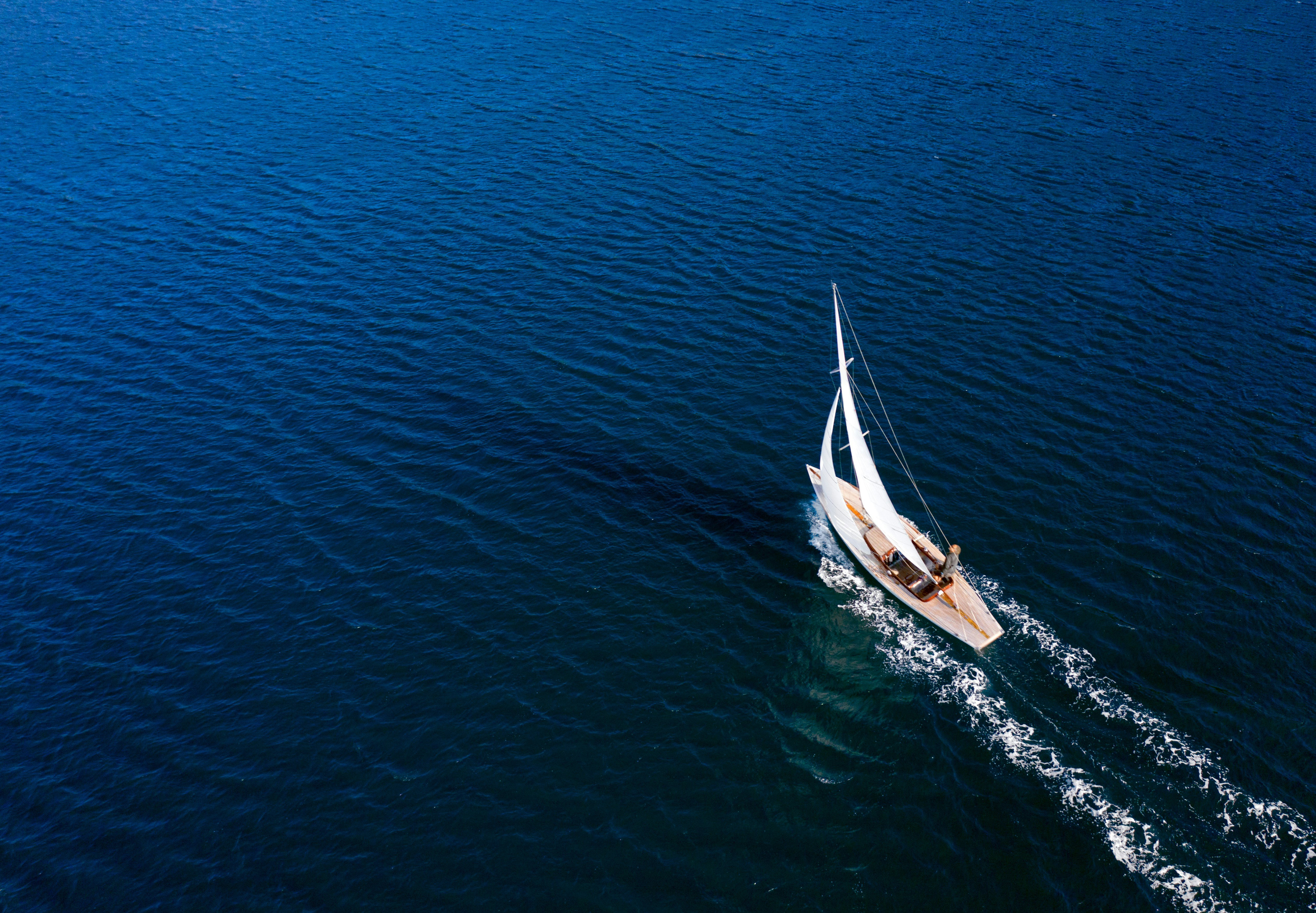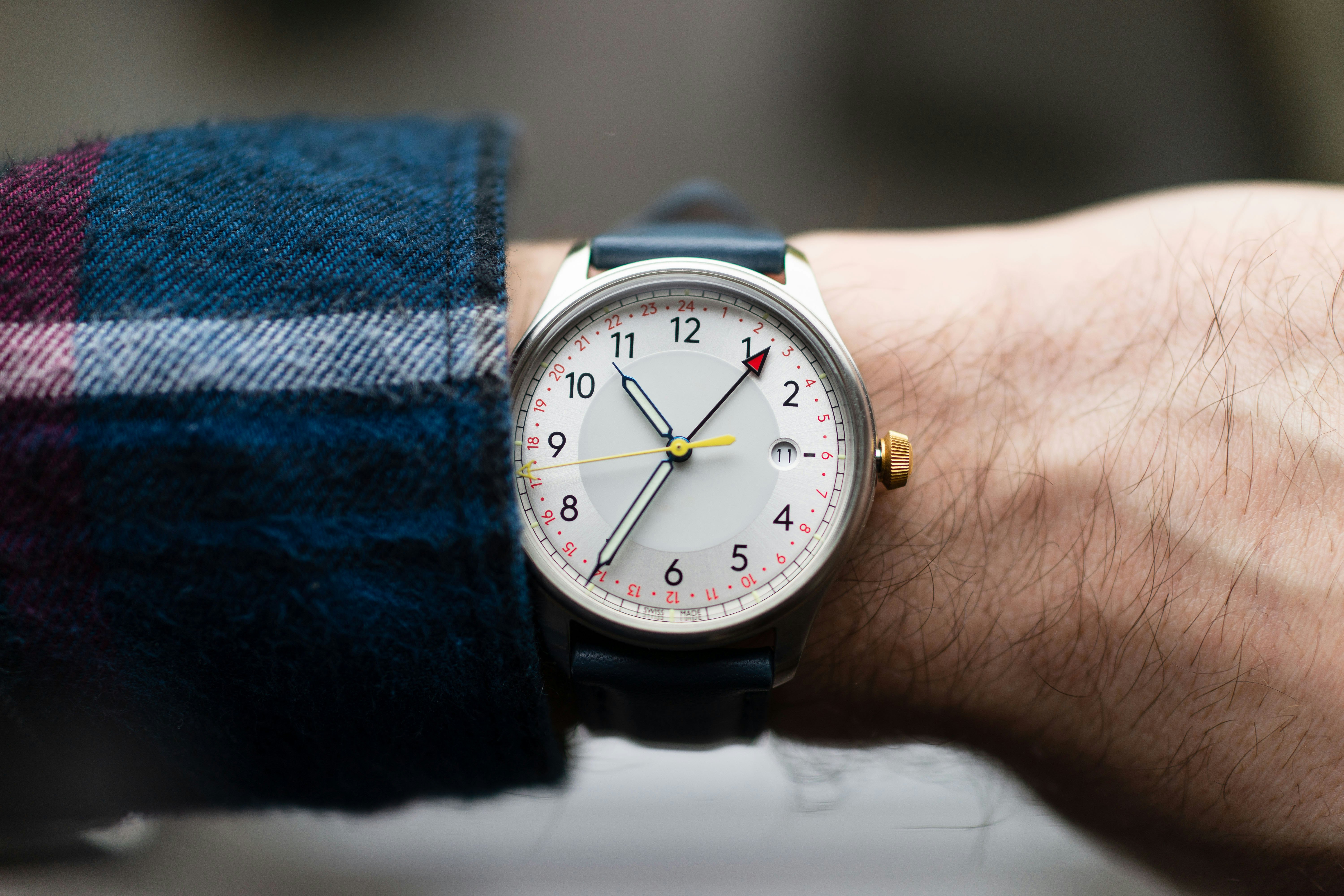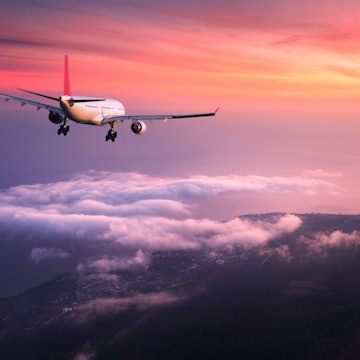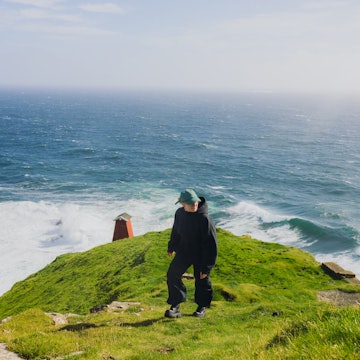
“How the hell can I do 100 days of this?” – 5 self-isolation tips from a solo circumnavigating sailor

Mar 23, 2020 • 6 min read

Sailor Brian Thompson has completed more multihull nautical miles than any other Briton. On the way to breaking 25 world records, he’s circumnavigated the world solo, crossed oceans with crews, and been cut adrift in the Atlantic Ocean with just his girlfriend – and no clue how long it would take to get back to shore.
Here, he shares his advice on self-isolating during the coronavirus crisis.

1. Control the controllable
Brian Thompson and his girlfriend at the time Helena Darvelid, were five days into sailing across the Atlantic Ocean in a spindly, uninsurable plywood trimaran when disaster struck: the boat began falling apart.
The beam started to disconnect from the main hull and the sail was about to fold up. Brian was worried. They were at the mercy of any big storms and had little control over the boat: when the wind blew in the wrong direction, they would have to activate the parachute sea anchor just to hold their position.
They started limping, rather gingerly, back towards England. They didn’t know how long it would be before they reached dry land – or if they would make it back at all.
“You need to control the controllable,” says Brian. “If there’s a big storm coming there’s nothing you can do about it. You just need to do everything you can to prepare and mitigate problems as much as you can.”
In terms of the coronavirus, this could be planning your weekly meals, washing your hands frequently or keeping your living space tidy. For Brian it meant making rudimentary repairs to the boat and taking things day-by-day. In the end, it would be nearly a month before they got back to England.

2. Divide your time out into smaller chunks
“Like the coronavirus, these storms at sea aren’t personal. It’s here now and you have to deal with it as best as you can,” says Brian. He suggests breaking time in isolation into daily or weekly goals.
Whilst cut adrift, Brian and Helena knew that hitting land was the eventual objective, but they didn’t know how long it would take to get there.
“We focused on the overall goal, which was to get back safely,” says Brian, “but you have to be flexible too. Always look at the opportunities available.” As winds changed direction, the couple mapped for possible courses to Spain or France.
“Try not to think of the whole period you’ll be away,” Brian advises. “That seems insurmountable. It’s like a kid waiting for Christmas in February: it seems so far away.” Instead, think about achievable milestones: get up at the same time each day, plan your meals, get an hour’s exercise outside if you can. Or, as Brian puts it: “Get through one storm. Concentrate on sailing slowly for a little while. Decide where you’re going to aim at. You just have to believe that you will get there.”
3. Remain upbeat – and help others stay positive too
“When there’s two people, I think humour is quite key, just to remain upbeat and fun,” says Brian. Joking played a big part in Brian and Helena staying positive during their troubles in the North Atlantic.
“Maintaining a sense of humour is very important,” Brian admits. “You don’t have to force yourself to do it, but it’s important to do it, so if one person is feeling down, you can cheer them up and vice versa.” For those self-isolating, solving this might be as simple as a phone call to a friend or watching comedy at night rather than the news.

Positivity is even more imperative when sailing and self-isolating alone. In 2008, Brian was one of the 12 single-handed finishers at the Vendée Globe, one of sailing’s most gruelling endurance races. He would spend 98 days at sea.
Setting off from Les Sables-d'Olonne, near La Rochelle in Western France, Brian says the first few hours were the toughest. He’d gone from 300,000 people cheering off the racers to being utterly alone.
“In the first 24 hours you do think: ‘how the hell can I do 100 days of this?’ It’s like contemplating the complexity of the universe if you think too hard it’ll drive you crazy, so you stay positive and keep thinking forward. Think about getting to Cape Finisterre, then think about getting to the Canary Islands, and then the equator,” he says.
4. Keep yourself shipshape
Casting off on his boat Bahrain Team Pindar for the Vendée Globe, Brian needed to stay in the best possible condition to prepare for any eventuality. Some of his competitors' yachts ran aground, others dismasted, the French navigator Yann Eliès fractured his femur and had to retire from the competition.
The race is brutal. Boats dive south from France and sweep east around South Africa’s Cape of Good Hope as the sailors cut a fine line between speed and safety. The yachts tunnel east, veering beneath New Zealand, before swinging north around Chile's Cape Horn and tearing back to Europe, sails flapping in the wind.
Brian slept just three hours a day in total. “Much like the coronavirus, self-isolating on a boat like that means you’re not going to pick up a bug,” he says. Exhaustion however, was inevitable. “I’d do polyphasic sleeping, where I wouldn’t sleep for more than 45 minutes at a time.”
While this isn’t something that people will have to do in their home, Brian says keeping your sleep topped up is important, particularly when dealing with stress. “Maybe you’re not going to be sleeping eight or nine hours a night, so get as many little sleeps in as you can,” he adds.

5. Treat yourself when it’s all over
After 10 days of racing in the Vendée Globe, Brian ran out of fresh food. He turned to freeze-dried meals for the next 88 days. He’d picked a variety of meals to take with him: porridge with strawberries or sultanas or blueberries, Thai-green curries, and even a freeze-dried Christmas dinner.
“I had vitamin pills, so while I wasn’t as healthy as I had been on land, I was fine on food like that. It may not be what you normally pick, but it was giving me energy and keeping me going,” he says.
“Don’t let it get you down, when you’re back on land you can have your dream meal.” For Brian, that was a huge bowl of guacamole and seared tuna followed by a rich chocolate mousse. Self-isolators can start planning for their favourite meal now.
“Unlike sailing, nobody has chosen this,” says Brian on the parallels between endurance sailing and the coronavirus, “but everyone can survive this. Some may even thrive on it. So decide on how you’re going to get through it and then decide on how you’ll make the most of it.”
You might also like:
How to learn a language without leaving your house
Broadway might be closed, but here’s how to stream the best performances from your home
The best Lonely Planet Spotify playlists for travellers pining for the road
The novel coronavirus (COVID-19) is now a global pandemic. Find out what this means for travelers.






















